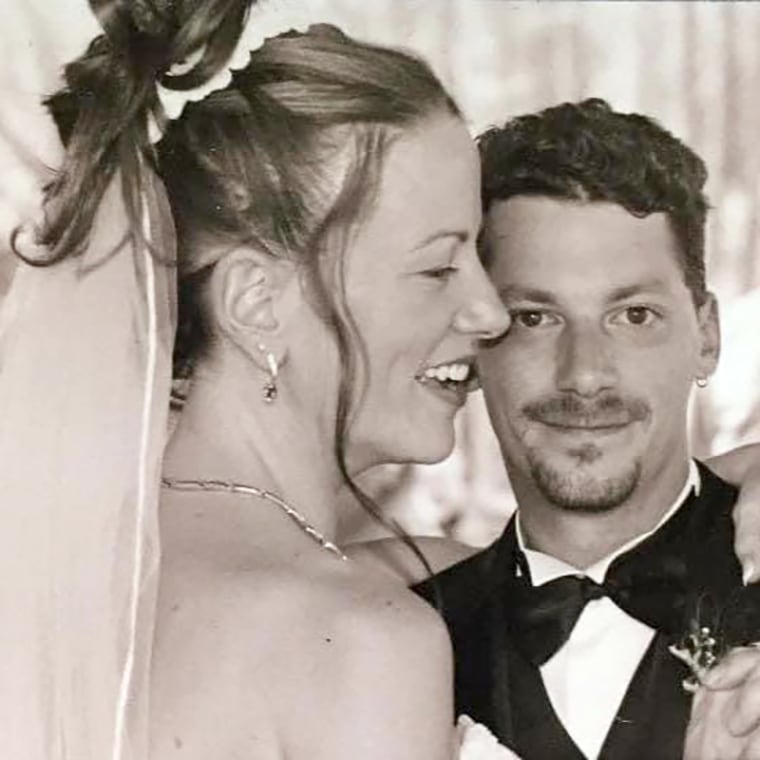
The day after she lost her husband of 22 years to lung cancer, Lisa Ann Motto received a phone call from a man who said he worked at the funeral home that was handling the cremation.
“He said I needed to make a deposit for insurance purposes, and it was urgent,” recalled Motto, 58, who lives in Bonita Springs, Florida.
The man told her that she owed $5,000 but that she could pay an initial installment of $2,500. He told her she could use Zelle or Apple Pay to make the payment.
Motto said she should have known then that something was off, but she wasn’t thinking clearly. It was just after 8:30 a.m., and she’d had a rough night. Plus, the man on the phone didn’t sound suspicious — he spoke with a Southern drawl and was “real personable,” she said.
She tried to make the payments, but they were flagged as suspicious. The man started explaining to her that he would send a PayPal request when Motto’s son overheard the conversation and told her to hang up immediately.
She now knows that she was targeted in a new scam that preys on people who just lost their loved ones.
“They just catch you at such a weak moment,” said Motto, whose husband, Doug, died at the age of 53 on July 20. “There’s a special place in hell for people like that.”

The funeral home swindle adds to an already long list of fraudulent schemes — including romance, grandparents and lottery scams — rampant in the United States.
“If there was a Scammers Hall of Shame, this one would make the Top 10 List, without question,” the Federal Trade Commission said in a recent blog post about the funeral home fraud.
It works like this:
The perpetrators scour online obituaries and then call loved ones of the recently deceased claiming to be from the funeral home where arrangements have been made. The scammers tell the people they need to pay a deposit to secure their service or cremation.
In some cases, the scammers mask their phone number to make it appear as if the call is coming from the funeral home, a practice known as “spoofing.”
“To prey on individuals and families at such a vulnerable time is despicable — the lowest of the low,” said Jessica Koth, director of public relations for the National Funeral Directors Association.
Several funeral homes across the country have posted on social media warning people about the scam. But it’s still taking some by surprise.
Hope Etherton, a funeral director at the Rainsville Funeral Home in northeastern Alabama, was with a family preparing for a visitation when the wife of the deceased received a call on her cellphone.
The caller ID said it was the Rainsville Funeral Home, and the man on the other end of the line told her he was Blake Chandler, who is in fact a funeral director at the home.
Perplexed, the woman passed the phone over to Etherton.
“I let him know who I was and that Blake was my brother,” Etherton said. “Once I told him that, he hung up.”
“I’m just glad the family was here when it happened,” she added.
Deniece Leistner’s mother, Anna Louise Hodges, died June 11 at the age of 76. After the family scheduled her cremation at a funeral home in Wichita Falls, Texas, the home posted an online obituary.
Not long after, Leistner’s father received a phone call from a man saying he worked for the funeral home and they needed to put down a $200 deposit.
“I took over the call and said a deposit for what,” Leistner, 58, recalled.
The man said it was for insurance in case anything were to happen. Leistner, who works as a manager at a convenience store and is wise to scams, said she was immediately suspicious.
She hung up and called the funeral home, which confirmed that it was a bogus call.
“I wish this guy would have called me back,” Leistner said. “I was planning to tell him I’ll pay him the $200 but it’s going to be in cash, so he has to meet me somewhere.
“And then his family would be planning his funeral,” she said, her tone ice-cold.
The FTC recommends that people resist the pressure to act immediately and to call the funeral home directly if they have doubts about the person on the other end of the phone.
“Anyone who pressures you to pay or give them your personal information is a scammer,” the agency said in its blog post.
Motto, of Florida, said she initially felt a wave of embarrassment over almost falling for the scam. But she decided to post a message on Facebook about her experience in a bid to warn others.
“I don’t want anyone to be scammed like this at such a tender time in their lives,” she said.

 Latest Breaking News Online News Portal
Latest Breaking News Online News Portal




